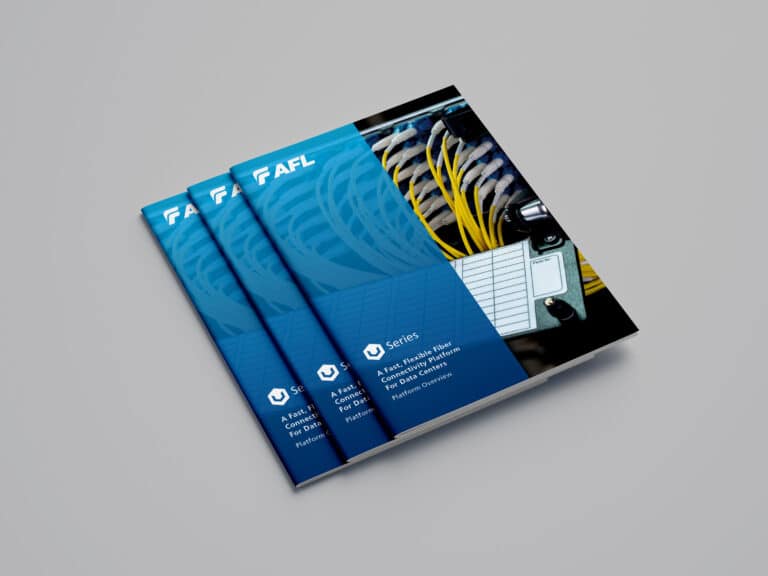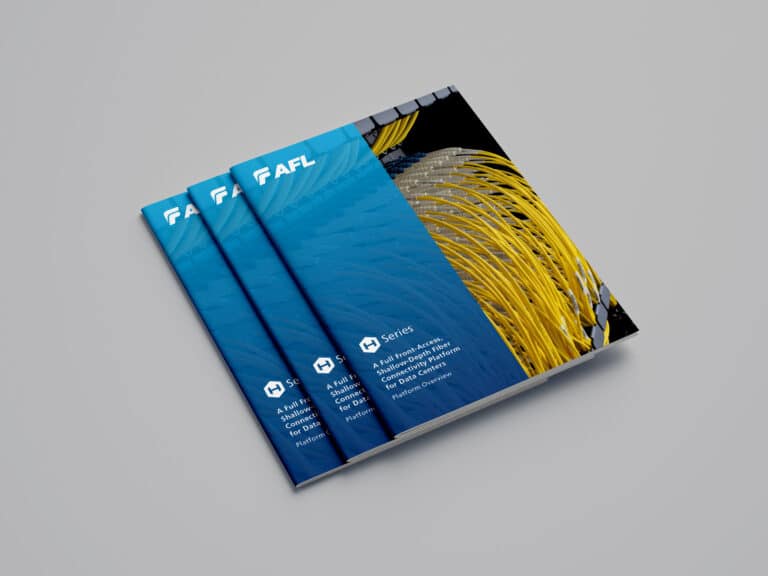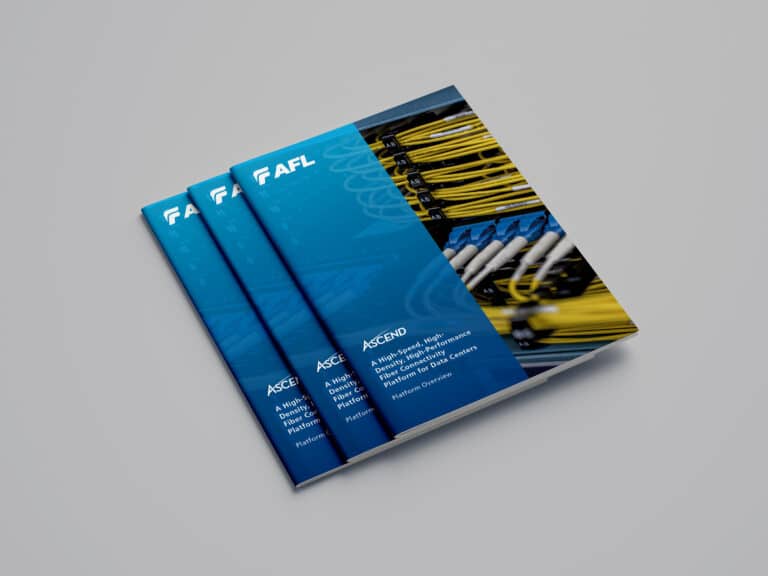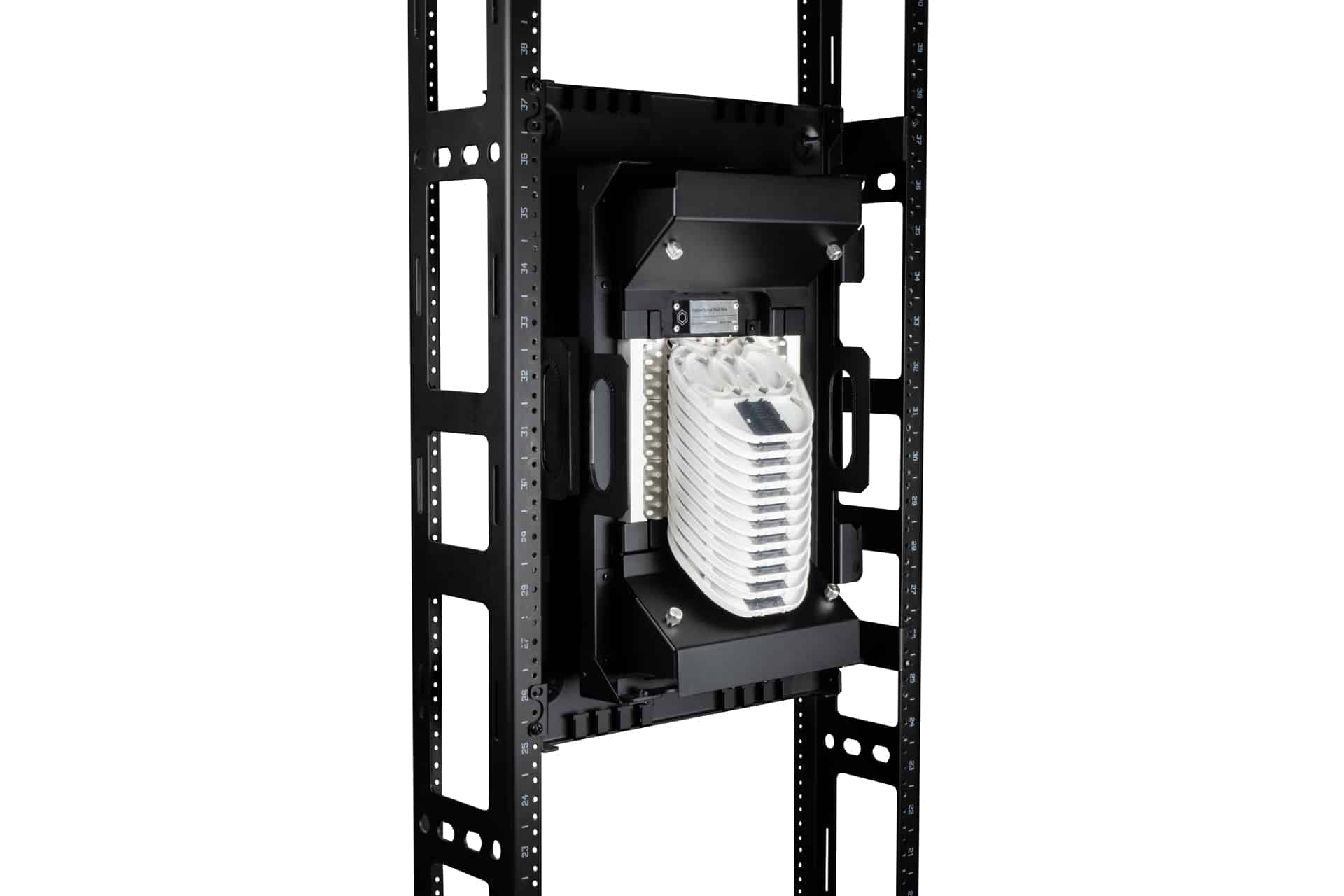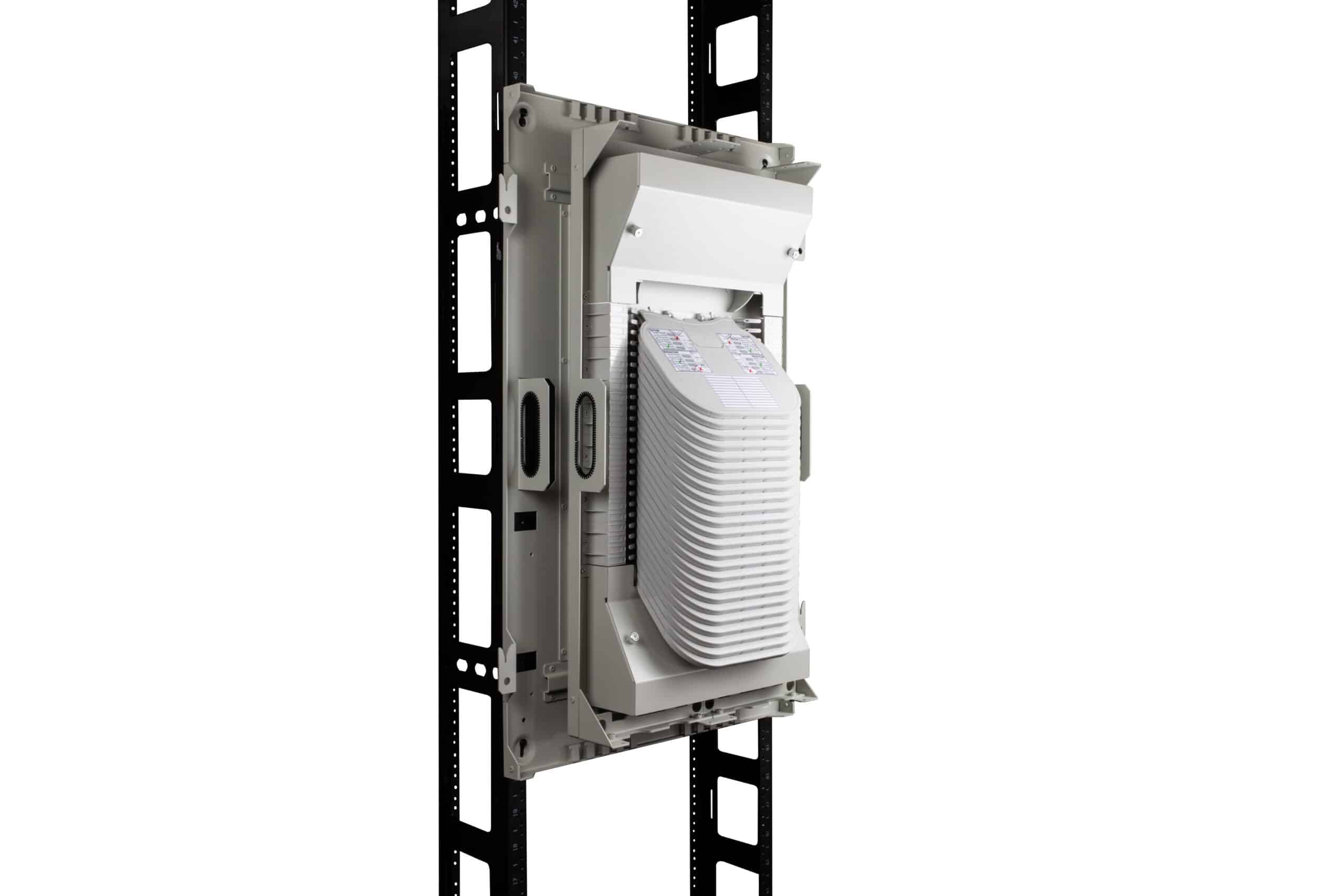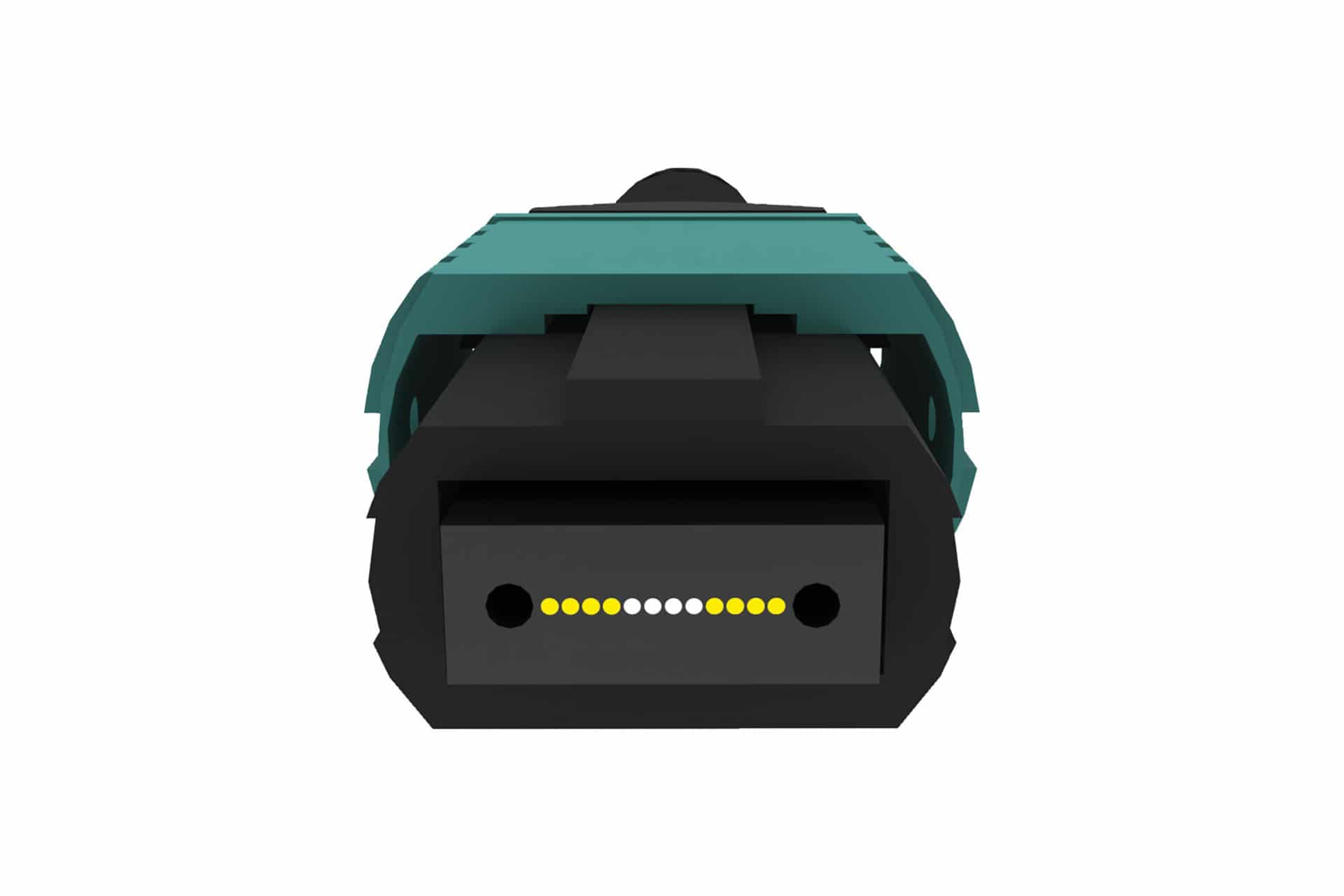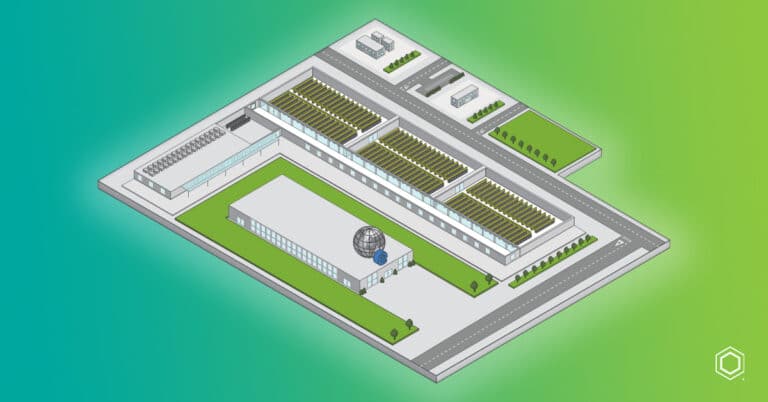Home » Solutions » Data Center Solutions » Colocation
Colocation
Colocation is a complex, competitive market. Tenants need the ability to add capacity on demand, the capability to scale networks across the globe, and the agility to make high-speed connections with cloud and service providers as and when required. For colocation providers to compete, the physical layer should provide flexible, scalable, high-performance fiber infrastructure, designed to support increasingly demanding applications and customer requirements. We have the expertise to make sure your network is giving you the competitive edge - from outside plant cable to the customer cage.

"What is a colocation data center?
Colocation data centers are large data centers built to house multiples of Enterprise or Hyperscale customers – often referred to as Multi Tennant Data Centers (MTDC).
The Colocation operator will provide space, power, cooling, and interconnections to service providers also located within the data center such as connections to a Hyperscale provider or a Telecom operator.
This enables Hyperscale operators to scale rapidly in global metropolitan areas where they do not have or plan to have their physical presence. For the Enterprise customer, this eliminates the need to build and manage their facility, thereby greatly reducing the initial capital outlay and ongoing management of an on-premises facility.– Keith Sullivan, Director of Strategic Innovation - AFL Hyperscale
Colocation Challenges
New customer connections
Colocation data centers represent the frontier where hyperscale, cloud, telecom, and enterprise worlds interconnect. If not properly maintained, a colocation fiber network can quickly become difficult to manage. This can be prohibitive for end-users seeking to connect to new carriers. Effective infrastructure means end-users can cross-connect quickly, save on labor cost and time, generate revenue faster, and provide the agility to offer a variety of cost-generating services to their customers.
Consistent service
As storage and data management requirements grow, colocation providers need to reduce latency and downtime whilst simultaneously increasing connectivity density and bandwidth capability. We are experts in designing and manufacturing solutions for multi-hall campus scenarios, with built-in redundancy and resiliency in the physical layer so your network not only delivers a consistent service that meets growing demands but is dependable in the face of external threats or risks.
Acquisition and standardization
The colocation market has seen a rapid rise in the volume of data centers, with acquisition after acquisition now commonplace as larger operators seek to grow regional footprints and improve customer connection capabilities. Different colocation providers will often have used different manufacturers for their physical layer meaning it can be a challenge to standardize on one or a handful of manufacturers after acquisition. Standardization on a global level can be difficult to achieve but the benefits are huge: network designs can be utilized and adapted anywhere in the world; network spend can be leveraged to drive manufacturing costs down and product availability up; and site engineers can all follow consistent product training and installation programs. As a manufacturer with a global presence, we can provide the expertise and infrastructure to ensure consistency for your networks, wherever they are in the world.
Global availability
Colocation is a game of growth and this means either building up or building out. Building out means acquiring or leasing land where development space is often limited or expanding into new countries or continents - this requires expert knowledge and local support.
On the flip side, if you are looking to ensure low latency in a densely-populated area where land is expensive or non-existent, you need to build up. Wherever your expansion and whatever the size, we can help you to get it right.
Security
Data breaches have more than just a financial impact, a security attack creates a lack of consumer trust, damaging the colocation provider’s image, integrity, and reliability. Infrastructure redundancy and a network’s physical characteristics are often the last lines of defense against internal or external threats. At AFL, we create solutions to help protect your network against such risks.
Suppliers
The rapid growth of colocation data centers is dependent on the strength of their supply chain and the ability to effectively provide tenants with what they need. From global standardization and intermittent demand to the need for rapid technological innovation, we pride ourselves on understanding the opportunities and challenges for colocation data centers and are dedicated to helping them deliver their services and create a more connected world.
AFL Capabilities
Global Reach
Global support and manufacturing capabilities, with fast delivery across the globe.
Innovative technology
Across fiber density, connectivity automation, splicing capability and emerging bandwidth speeds, we are at the forefront of optical fiber innovation.
Comprehensive customer support
Across product and installation training, installer certification, network warranties, network layouts and product design, we offer the most comprehensive customer support in the industry.
End-to-end solutions
From outside the data center to inside, we provide scalable easy-to-use, fast-to-install, high-performance network solutions.
Colocation Data Center Infrastructure Solutions
The physical layer of the core colocation network (from outside plant cable to the customer cage) calls for redundant and structured cabling architecture, that has the capability to add capacity and scale quickly and reliably. This is often made up of high-fiber-count cable and easy-to-use, fast-to-install, modular, and scalable connectivity infrastructure.
The network requirements inside the customer area often mean that tenants have other considerations such as maximizing density while maintaining ease of use and the flexibility to grow.
For colocation providers and tenants alike, AFL Hyperscale provides the agility and sustainability for you to improve your network performance, lower your costs, and grow your business.
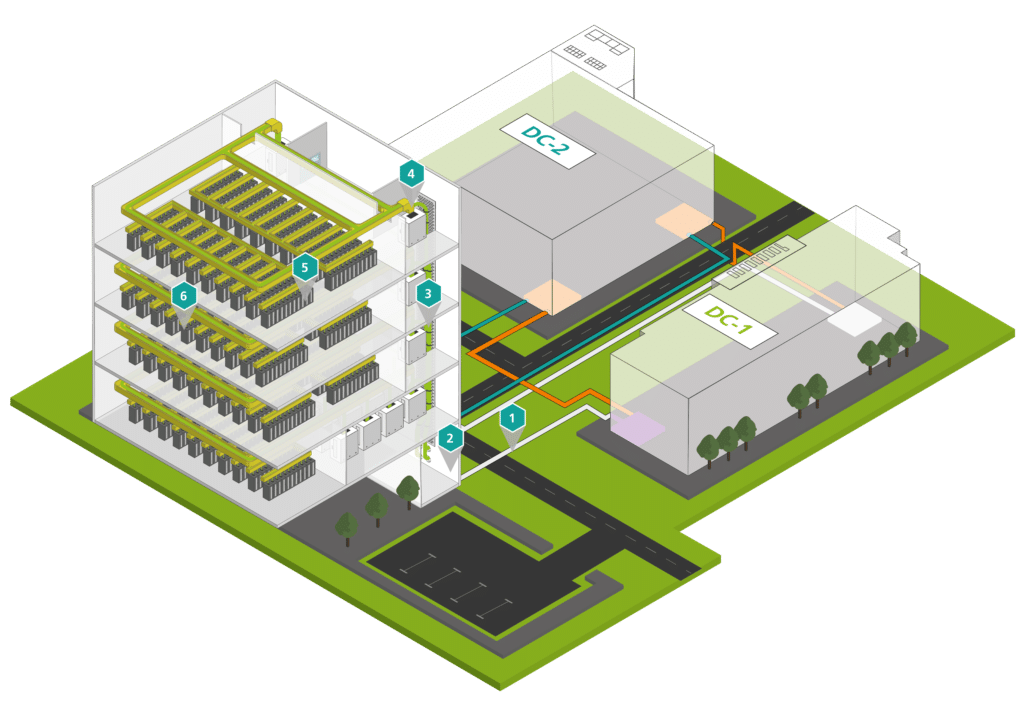
1. Outside Plant (OSP) Cabling
As colocation clusters can range from being next door to one another to being hundreds of miles apart, careful consideration is needed regarding the cable that links them together.
To ensure adequate future bandwidth, fiber density, fiber type, cable construction, distance, and installation method, all need to be taken into account. We work with you to ensure the right OSP solution for an efficient installation and a highly scalable network for many years to come.
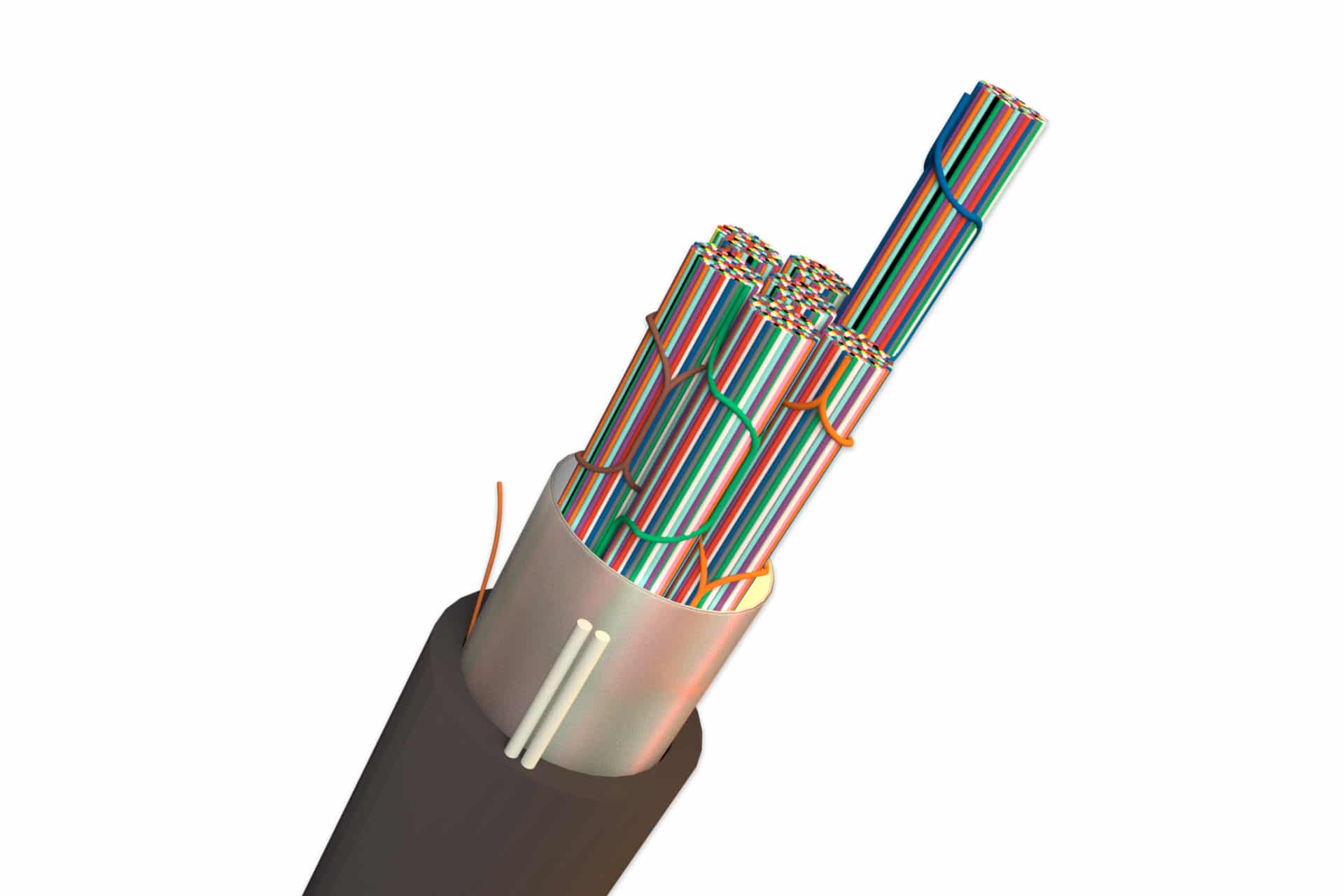
250 μm Wrapping Tube Cable (WTC) with SpiderWeb Ribbon® (SWR®)

200 μm Wrapping Tube Cable (WTC) with SpiderWeb Ribbon (SWR)

Flame-Retardant Wrapping Tube Cable (WTC) with SpiderWeb Ribbon (SWR)
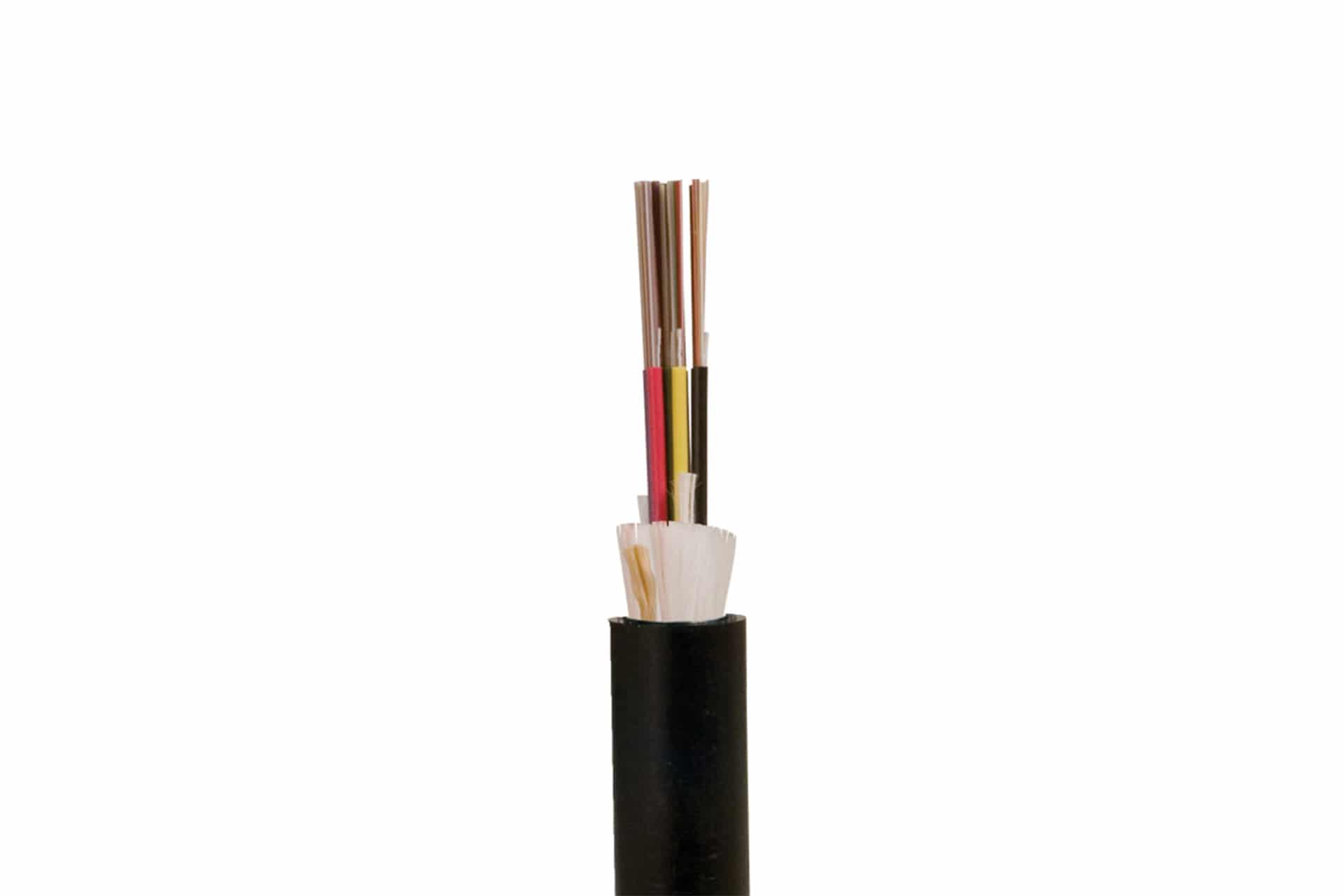
Multi Loose Tube Fiber Optic Cable
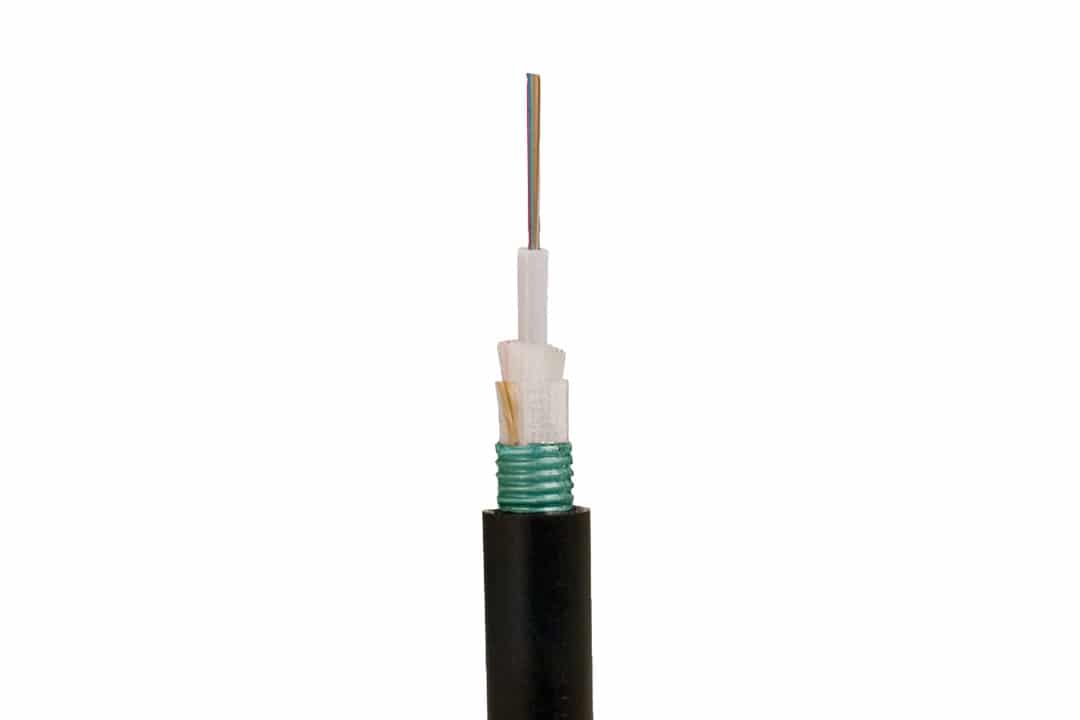
Single Loose Tube STA with E-Glass External
2. Meet-Me Room (MMR)/ External Network Interface (ENI)
A Meet-Me Room (MMR), otherwise known as External Network Interface (ENI), is where outside plant cable transitions to inside plant cable.
All sorts of optical cables converge here; from other colocation data centers in the cluster, to internet service providers, telecommunications carriers, and cable companies.
In the MMR or ENI, it is important to utilize a solution that optimizes splicing efficiency, both to ensure the best possible signal transfer between fibers and to reduce labor time and cost. We offer a range of mass-fusion or single fiber splicing solutions to make sure you are making the right choice for your colocation data center.
3. Backbone Cabling
To create the data center backbone from the MMR to the MDA (or, for network resilience, another MDA), there are many considerations – primarily, the fiber density required but also the cable route. Typically, 144f – 864f cables need to be routed through walls or between floors. AFL Hyperscale has several options that allow you to terminate the data center backbone in a number of different methods and in a manner most suited to the MDA, including raw cable and mass-fusion splicing, cable pre-terminated with connectors or cassettes, or cable pre-terminated one end with an un-terminated cable stub for fusion splicing.
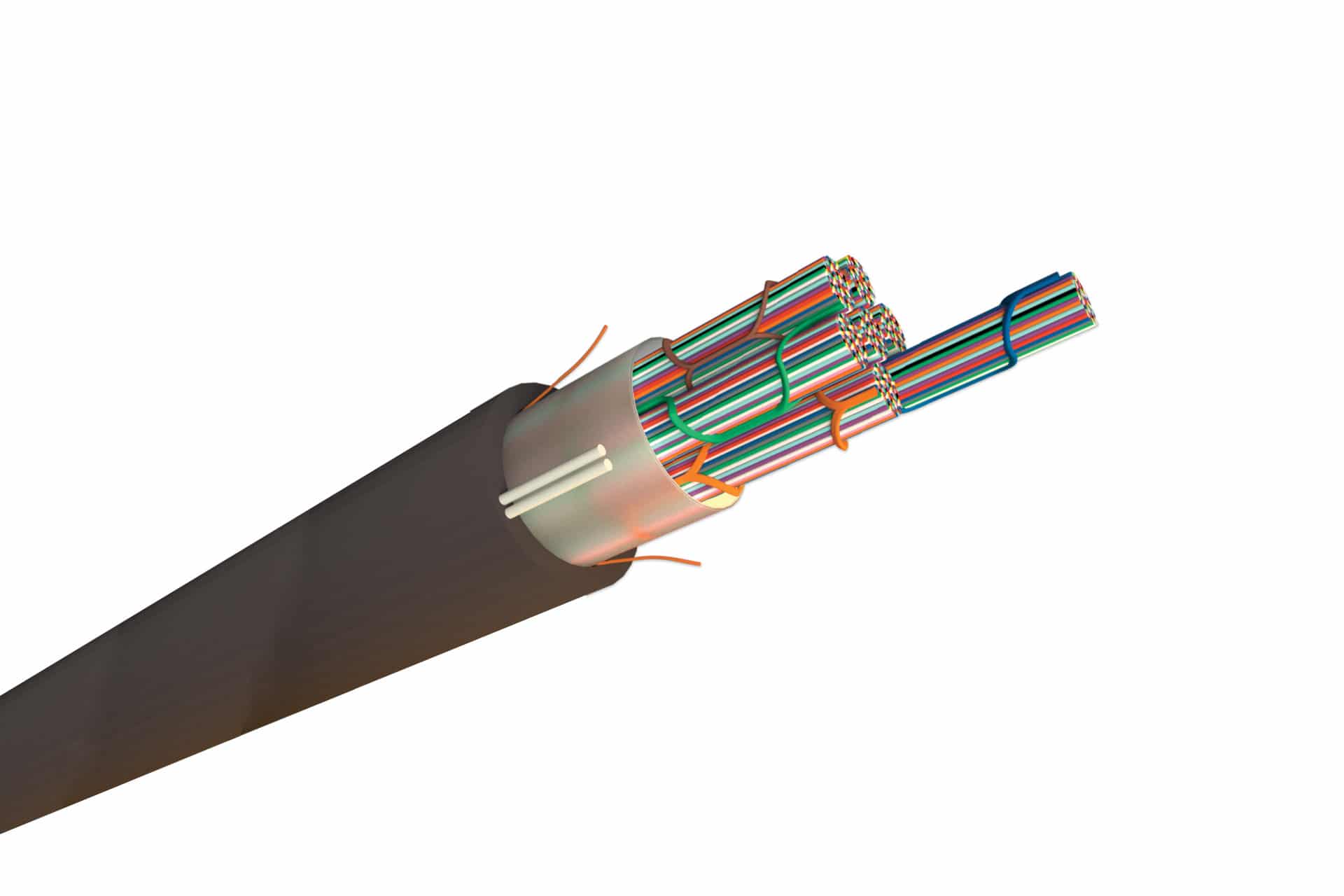
Premise MicroCore with SWR Cable
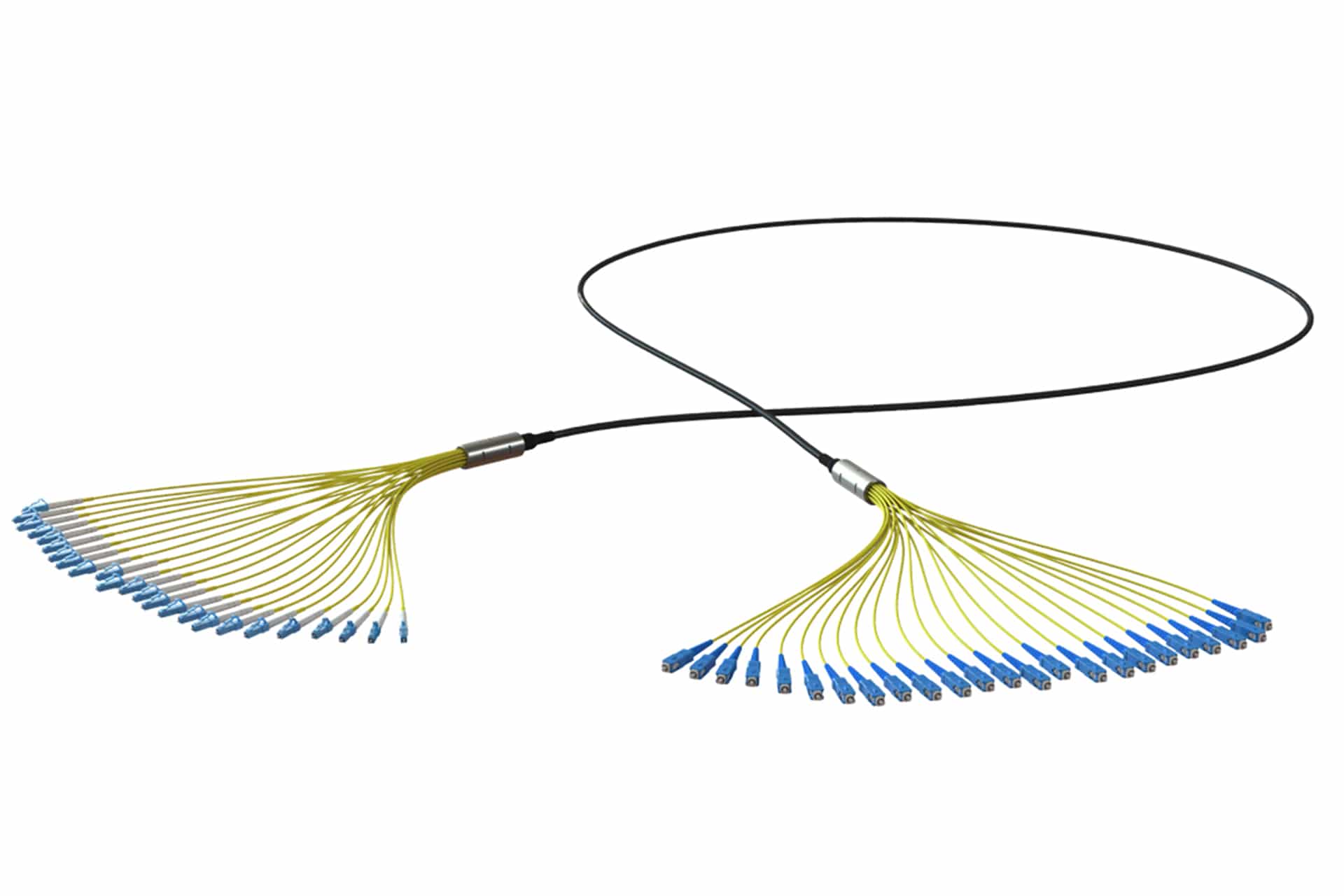
Multi-Fiber Loose Tube (LT) Cable Assembly
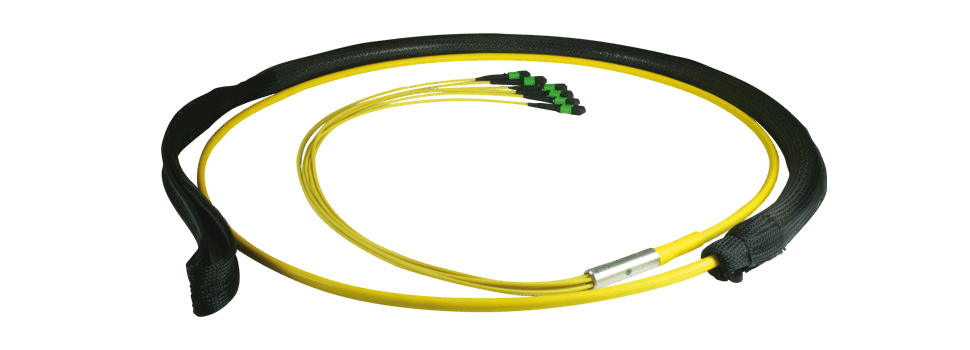
MPO Loose Tube Trunk
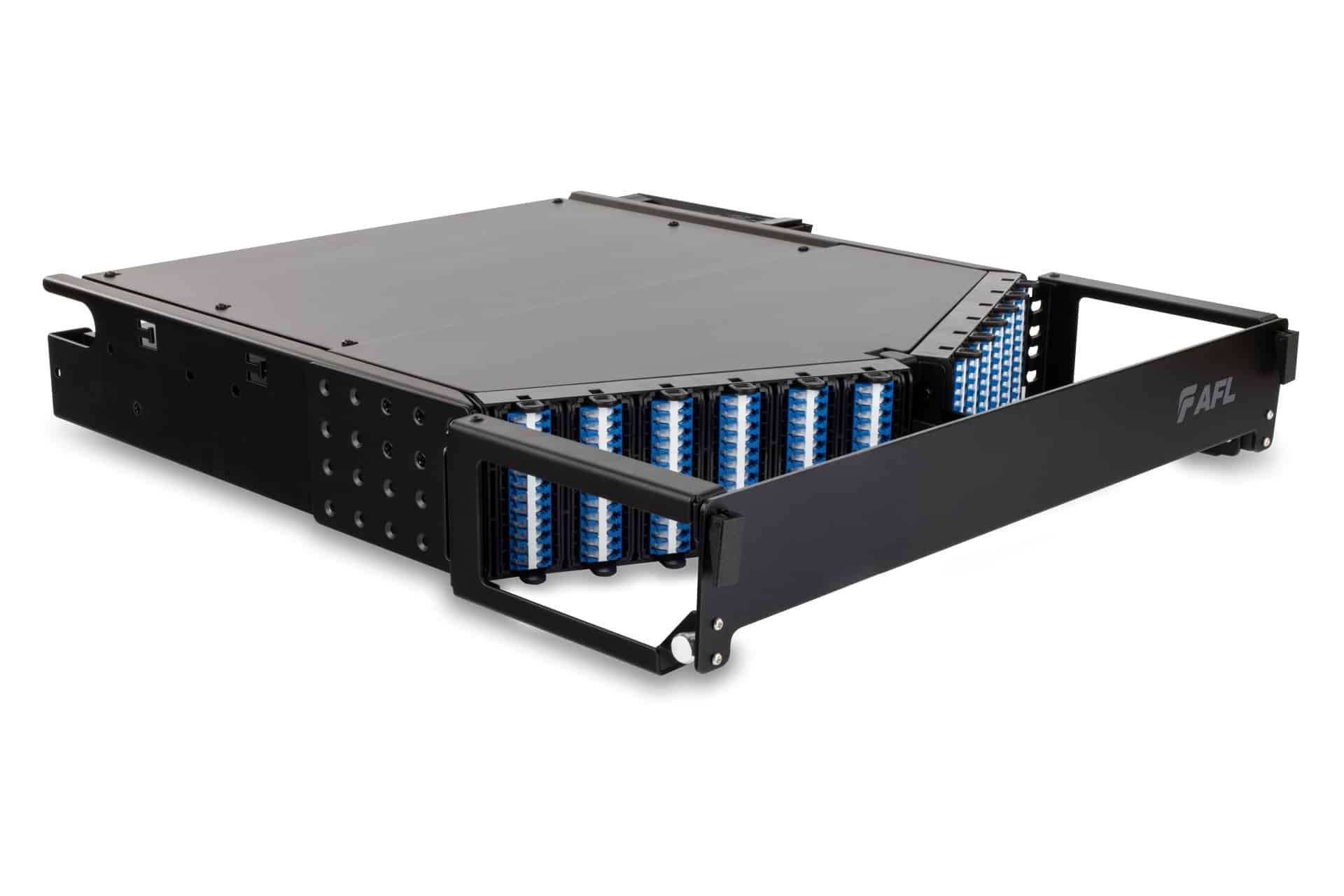
U-Series 2RU Front-Access V-Panel (FVP)
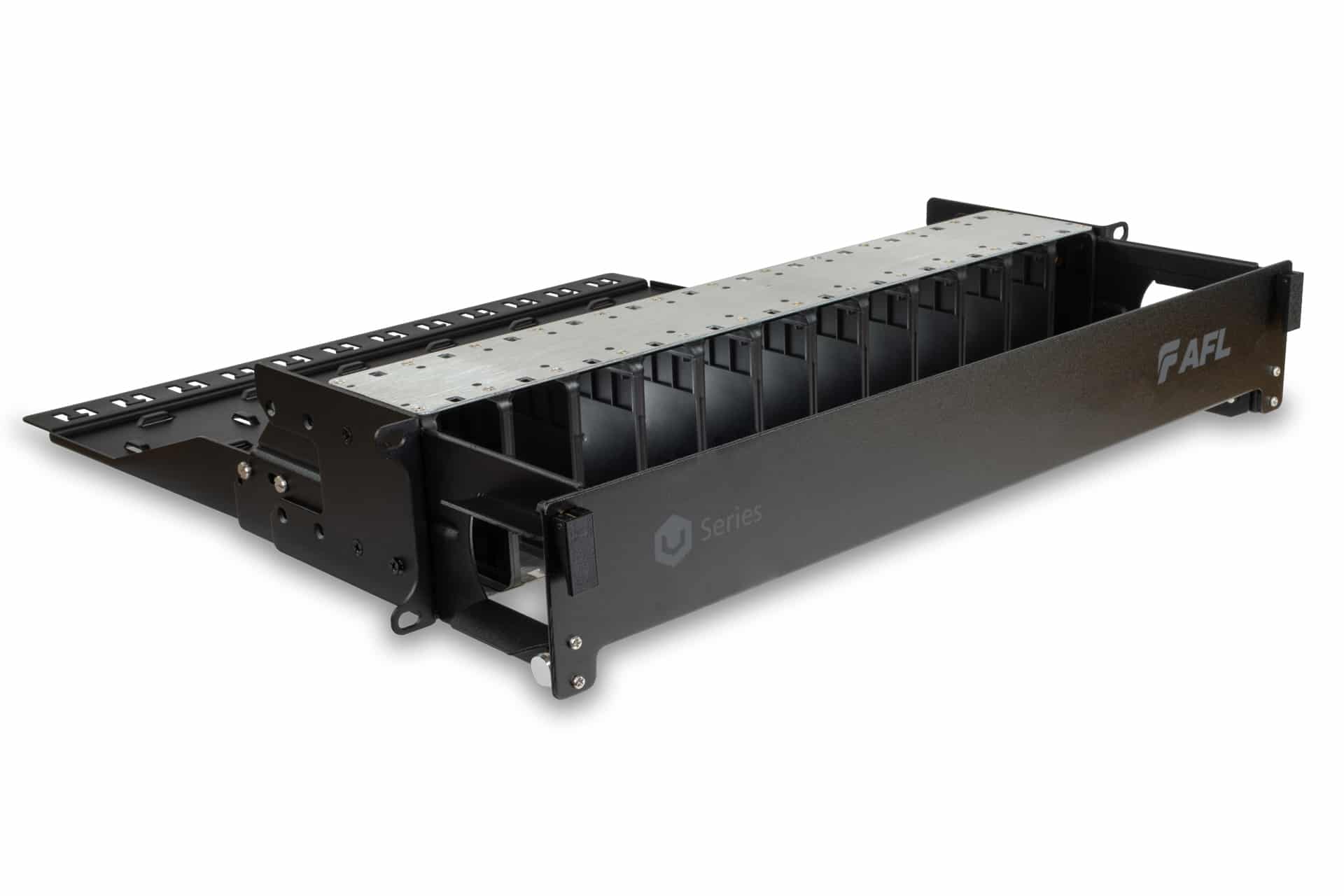
U-Series
2RU Housing
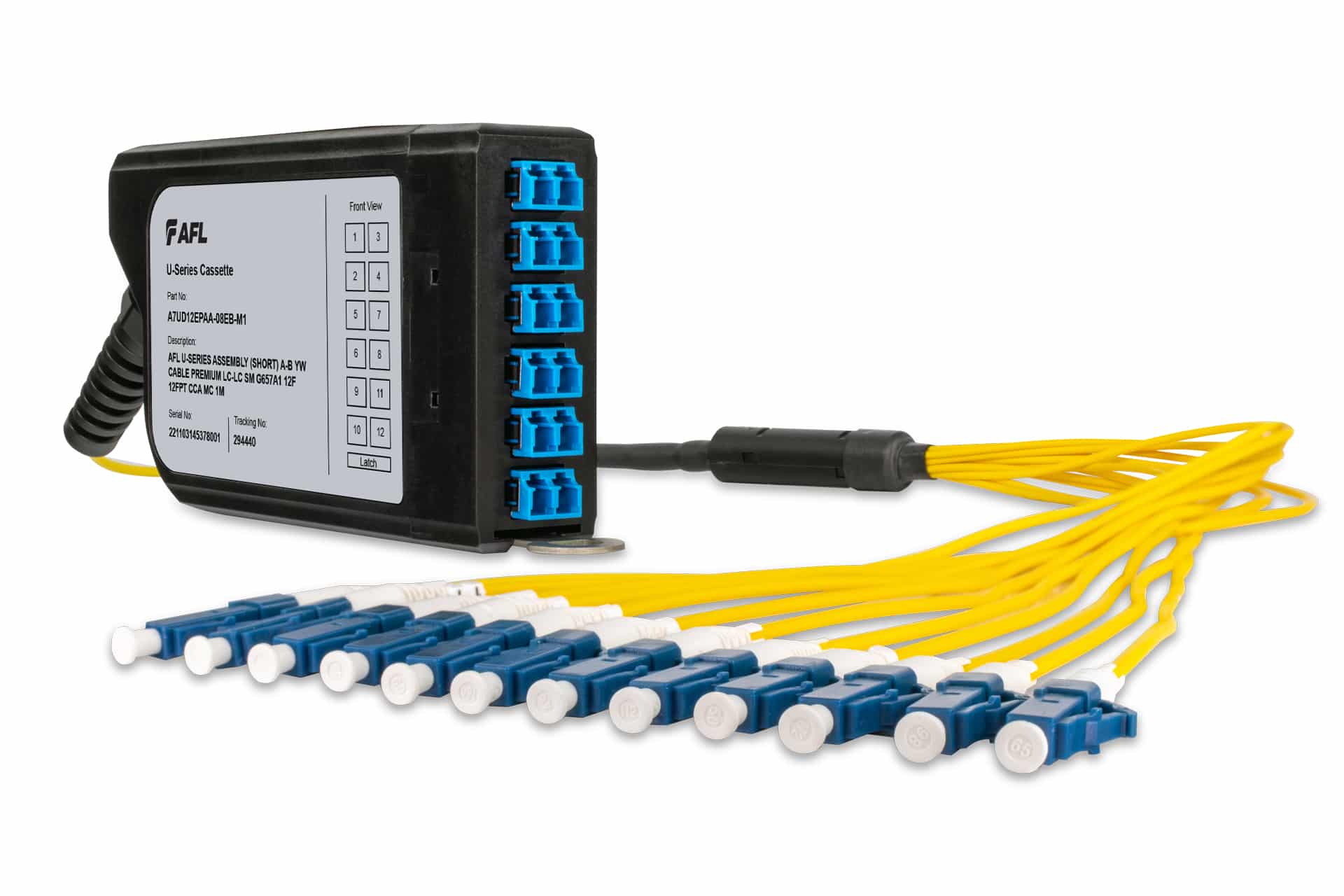
U-Series
Pre-Terminated Cassette
4. Main Distribution Area (MDA)
The MDA is the central point of distribution for the data center’s structured cabling system and is where horizontal cabling cross-connects to active equipment (switches, servers, and storage) or to the customer area.
AFL Hyperscale provide a number of high- and standard-density solutions to reduce the footprint of the MDA, making more room for customer spaces and facilitating moves, adds, and changes without disruption to the network or downtime. Our solutions also help colocation providers to significantly reduce the time required to bring customers online, providing you with a real competitive advantage.

U-Series 6RU Splice and Patch Panel

U-Series 2RU Front-Access V-Panel (FVP)
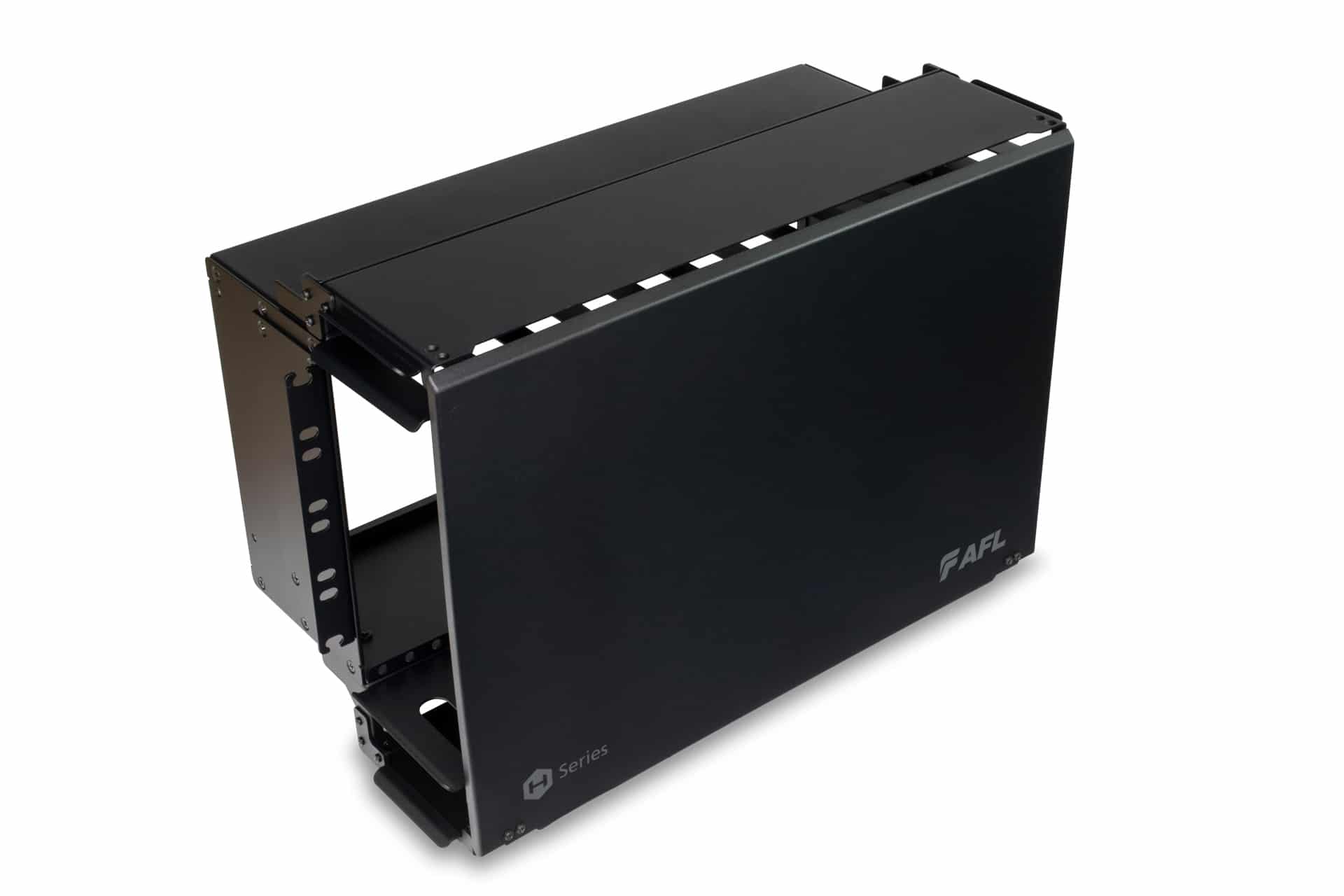
H-Series 7RU
Housing
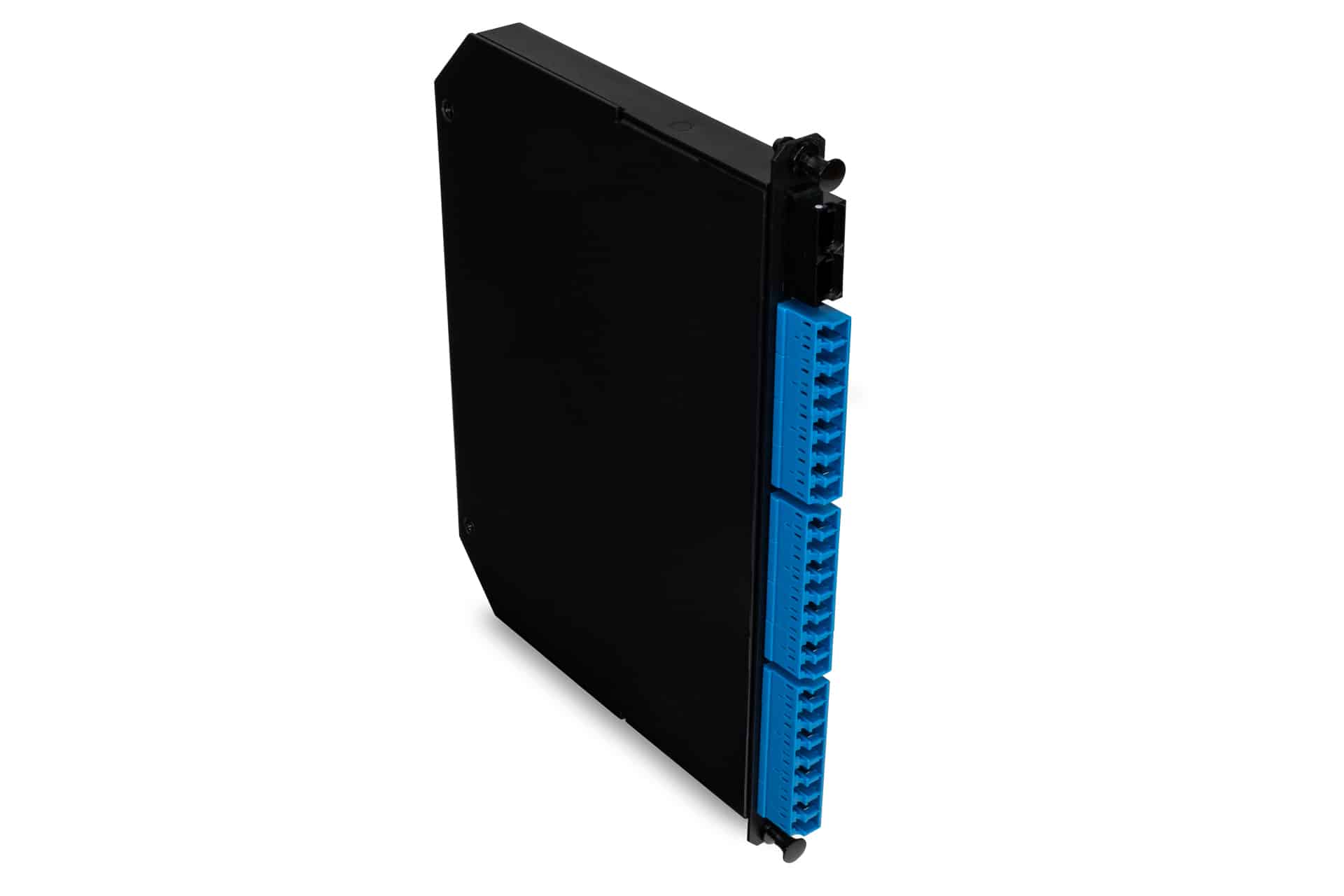
H-Series MPO – LC Cassette BASE-12 24f

U-Series 2RU
Housing
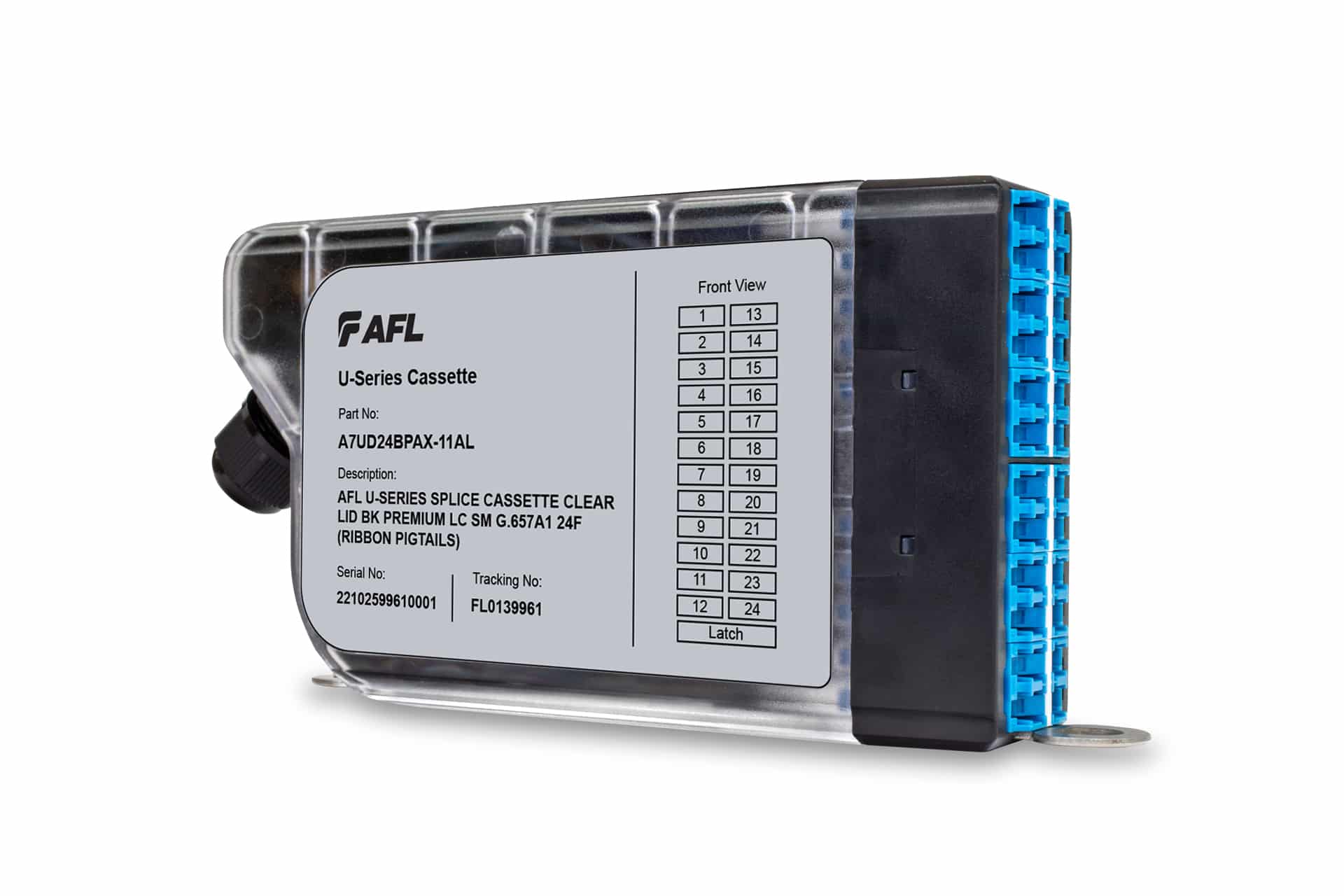
U-Series Mass Ribbon Splice Cassette
5. Horizontal Cabling
The MDA connections out to the customer area and equipment racks are referred to as horizontal cabling. In colocation data centers, these links need to offer the maximum flexibility for deploying connectivity to the customer area as and when it is needed. The architecture needs to accommodate very low-density fiber deployments as well as very high-fiber-count deployments in the same space.

U-Series
2RU Housing

U-Series
Pre-Terminated Cassette
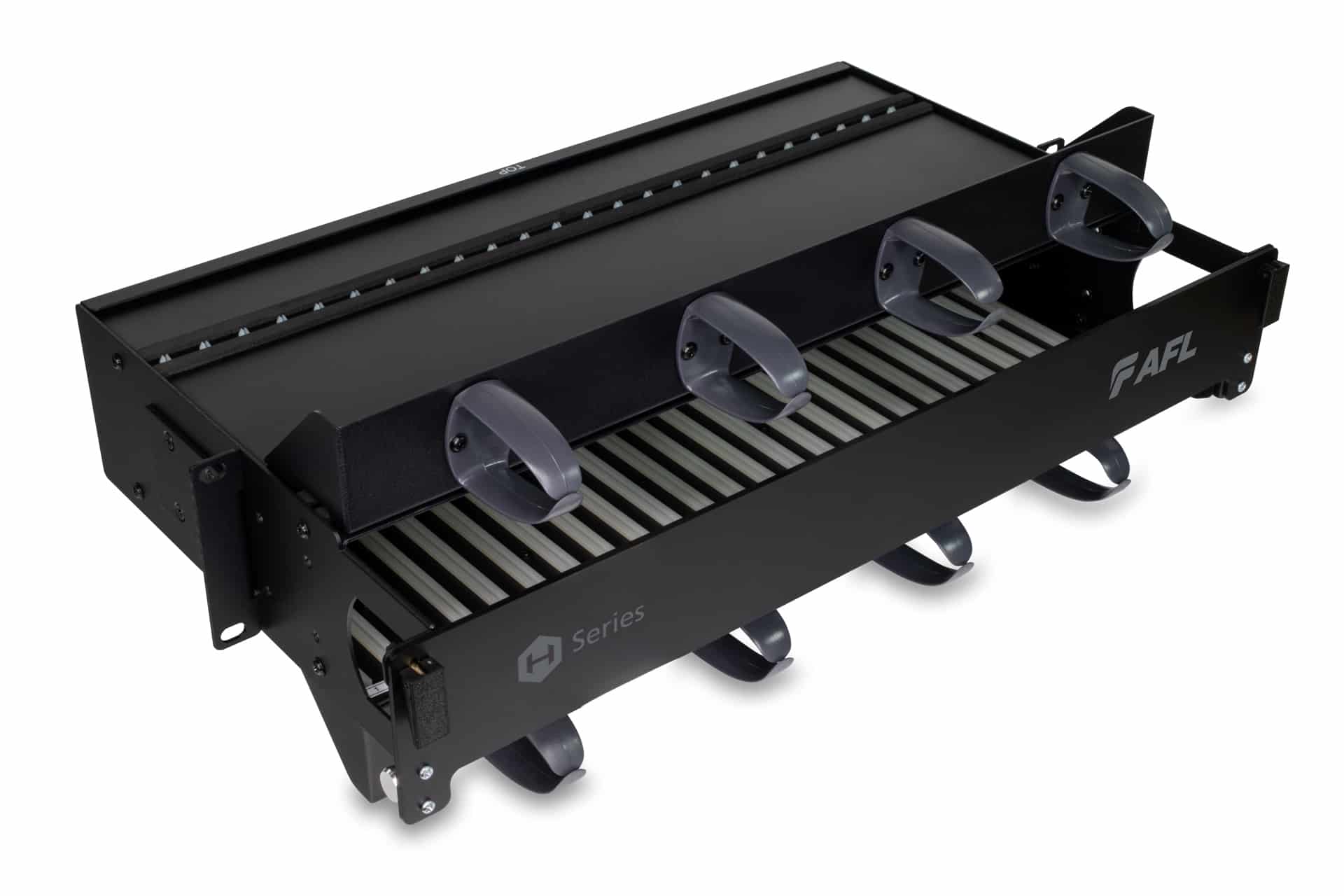
H-Series 4RU Housing and Splice-Through Cassette
6. Customer Area / Customer Cage
The customer area is where the tenant houses their infrastructure – this can be in a cage or in a cabinet. Our goal is to provide a better value solution that assists you to maximize density and future-proof your network infrastructure against growing bandwidth requirements.

U-Series 2RU
Housing
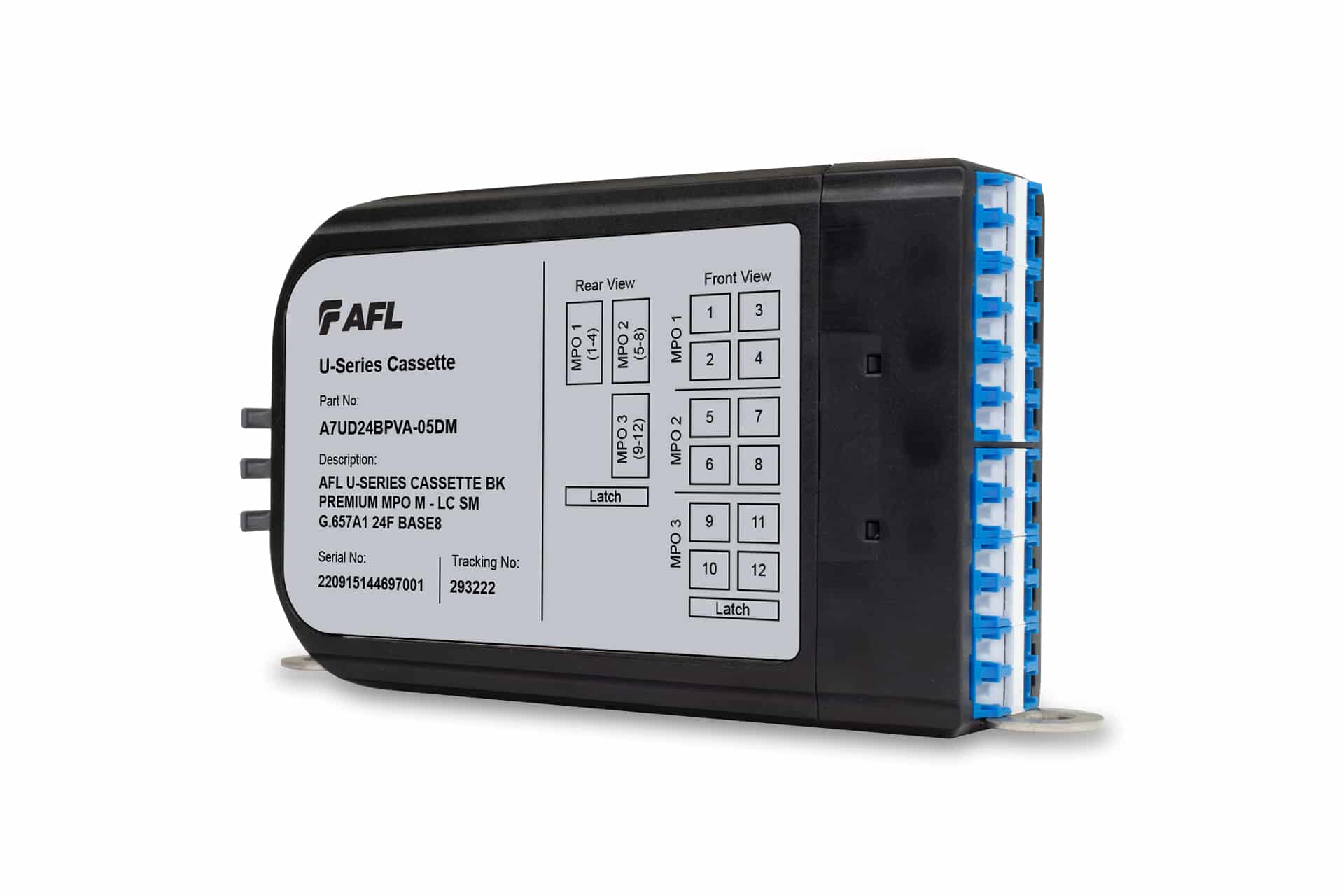
U-Series MPO Cassette
BASE-8 24f
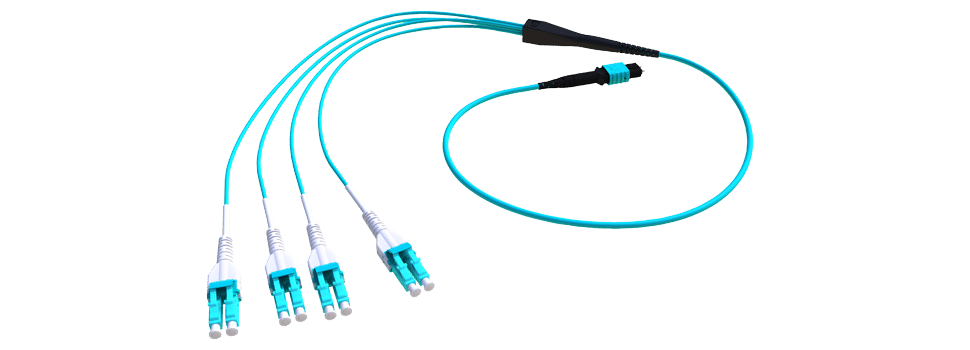
MPO to LC Assembly
BASE-8
Additional Resources
Related Downloads
